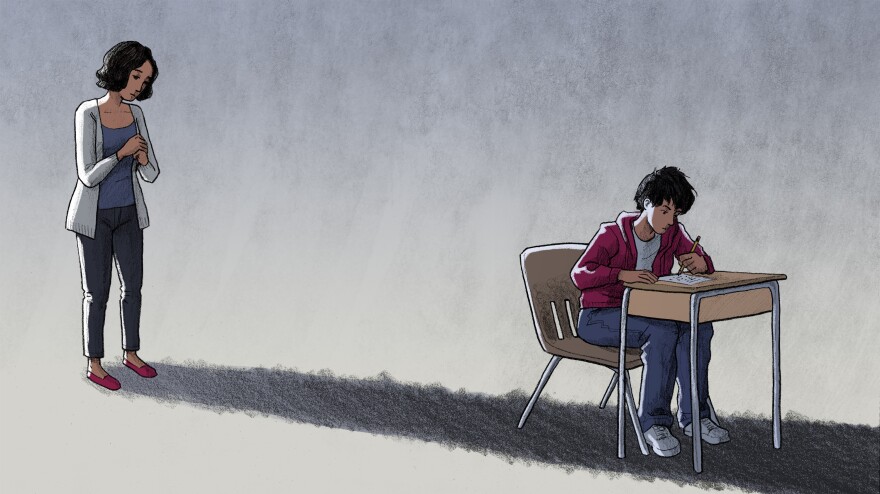When parents suffer depression, there can be a ripple effect on children. Kids may become anxious, even sad. There may be behavior problems. Health may suffer.
Recently, a large Swedish study showed that grades may decline, too, when a parent is depressed.
Using data from 1984 to 1994, researchers from Philadelphia's Dornsife School of Public Health, at Drexel University, measured school grades for more than 1.1 million children in Sweden and compared them with their parents' mental health status. The study was published in a February issue of JAMA Psychiatry.
At age 16, children of mothers who had experienced depression scored about 4.5 percentage points lower in their school grades than children of nondepressed mothers. Similarly, 16-year-olds with fathers who had experienced depression scored about 4 percentage points lower.
Even though 4 or 4.5 points may not sound like much, it "can mean a lot for a student," says Drexel epidemiologist Felice Le-Scherban. It may be the difference between an A grade or a B — or between a D and a C — and small grade differences can add up, sometimes shaping a decision about whether to stay in school or quit.
The quantity and quality of education can make a difference well beyond school years, says Le-Scherban. It's one of the "strongest predictors of health and life expectancy that we have," she says.
Studies show that better-educated individuals are less likely to smoke cigarettes, drink alcohol or be obese than those who don't finish high school or college. They tend to have a lower risk of heart disease and diabetes.
There are a number of reasons why depressed parents can have a difficult time nurturing their children, says epidemiologist Myrna Weissman, of Columbia University Medical Center in New York.
"Just think about the symptoms of depression — the feelings of hopelessness, helplessness, loss of energy, interest in things that usually give you pleasure," she says. "And think about having those symptoms and trying to take care of children."
The needs and demands of children can be overwhelming even for mentally healthy parents, much less those struggling to cope with depression.
"A parent who's depressed may not arrange an appointment with a teacher; may not have time to go; may not listen to the child; and may not find some solution to problems so that it lingers," says Weissman.
But, there is a silver lining: Depression is extremely treatable. Weissman has done numerous studies, including one that focused on depressed mothers. "We showed that at the end of three months, if mom got better, the children got better," she says.
The women who recovered from depression got interested in their children once again and were more loving and able to show it. Weissman says she heard from children themselves that their mom "just loves me more and listens to me."
She and others have found that psychotherapy or medication alone or a combination of the two can be effective treatments, she says.
Unfortunately, clinical depression is common, and a large number of adults can be expected to suffer a serious episode at some point in their lives. But even if you've inherited a propensity to depression, Weissman says, you can get diagnosed and treated as soon as possible, to good effect.
Copyright 2020 NPR. To see more, visit https://www.npr.org. 9(MDAyNDY5ODMwMDEyMjg3NjMzMTE1ZjE2MA001))


